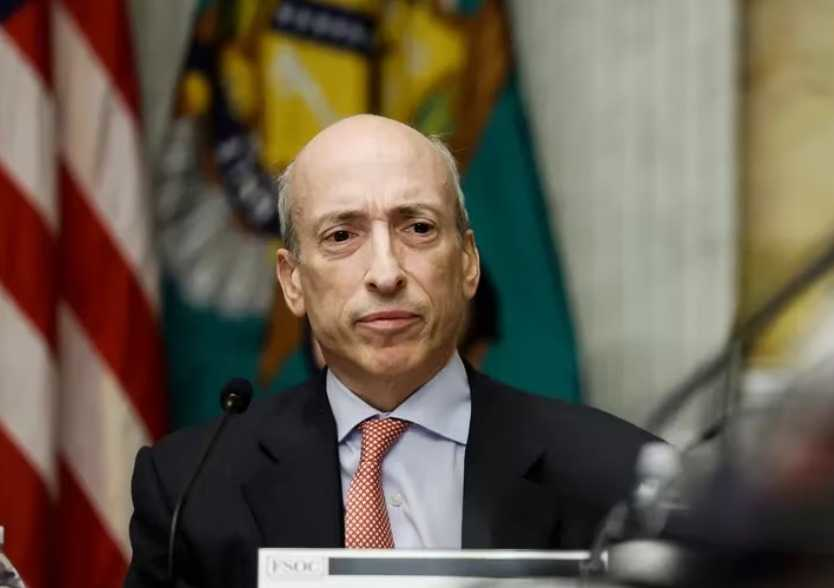The Securities and Exchange Commission (SEC) recently had a no-good, very bad day because of a district judge’s ruling in the SEC’s action against Ripple’s XRP token. Despite issuing a statement filled with bravado and the kind of detachment from reality that might make even Donald Trump think twice before pressing send, the SEC likely knows how serious of a rebuke its overall approach to crypto received in a federal court. If the ruling holds, we may be witnessing the beginning of the end of SEC Chair Gensler’s regulation-by-enforcement approach to crypto assets, and the end will be messy for those who oppose crypto.
Who could have seen that coming? It was entirely predictable to many, except for a tiny cauldron of activists in Washington, D.C. who adopted the view that “all tokens are securities” with a religious fervor. While the SEC will most assuredly appeal the district court’s decision, action in the courts will take months and are merely a sideshow to a larger reality, namely, the district court’s ruling. And what great timing as the policy debate in Congress is advancing their legislation to put a regulatory framework around crypto assets.
John Rizzo is senior vice president for public affairs at Clyde Group and a former spokesperson for the U.S. Department of the Treasury.
To understand why the policy debate has changed and its import on what rules tokens will be required to abide by, one must consider the long, winding road that crypto policy has traveled.
The desire to bring crypto assets into a regulatory perimeter has long been supported by many Republicans and Democrats in Washington. The thinking, which I observed when I served as a senior spokesperson at the U.S. Department of the Treasury and before that as a senior aide on Capitol Hill, was that crypto assets – love them or hate them – were here to stay and required regulatory frameworks that would mitigate risks, such as fraud perpetrated against consumers, illicit finance and destabilizing runs.
The realist strategy of regulating rather than attempting to ban crypto ran headlong into a desire by some in D.C. to achieve a policy outcome of eradicating crypto. These forces sought to throw sand in the gears of any legislation bringing a comprehensive crypto regulatory framework into law by asserting that crypto assets were merely securities offered by market participants who refused to comply with the law. The assertion that “most crypto tokens are securities” laid the groundwork for the SEC to achieve the anti-crypto crowd’s policy aims through regulatory means.
As of early 2023, the SEC’s regulation by enforcement spree remained untouched by the courts. Those who favored stifling crypto in America could persuasively argue to congressional Democrats, who are needed for any bipartisan crypto deal, that legislation was unnecessary and potentially harmful.
Tables turned
Ironically, with the district court’s ruling ramming a hole through the SEC and the anti-crypto crowd’s strategy, crypto opposers may be forced to accept a legislative agreement more permissive to crypto assets than would have been enacted during the previous Congress, one which Democrats controlled.
Instead of a regulatory framework for crypto assets designed and passed by a Democratic Congress and implemented by a Democratic administration, Democrats may be forced to accept an agreement drafted by congressional Republicans on the House Financial Services Committee. With the SEC and anti-crypto Democrats deprived of the argument that their legal cases were sound, there’s nothing to stop an acceleration of efforts to cinch a bipartisan agreement on a regulatory framework for crypto assets.
The SEC and those who support its approach are likely concerned that this no-good, very bad day becomes no-good, very bad days. A string of court losses with similar legal reasoning as yesterday’s ruling in the Ripple case would weaken anti-crypto Democrats' negotiating hand further. One takes this risk when placing all their betting chips on a novel legal strategy. When you lose, you lose significantly, and the other side of the debate understands that your negotiating leverage worsens by the day.
Far from achieving the end of crypto in America, the SEC’s attempt to cripple crypto in America may lead to a bipartisan regulatory framework that engrains crypto more deeply into the economy than once thought possible – a bad day for those who banked on a strategy of killing crypto assets in America, indeed.











 All while Pfizer—a company with a $2.3 billion criminal fine for fraudulent marketing, bribery, and kickbacks—was given blanket immunity from liability and billions in taxpayer dollars to produce a vaccine in record time with no long-term safety data.
All while Pfizer—a company with a $2.3 billion criminal fine for fraudulent marketing, bribery, and kickbacks—was given blanket immunity from liability and billions in taxpayer dollars to produce a vaccine in record time with no long-term safety data.
























